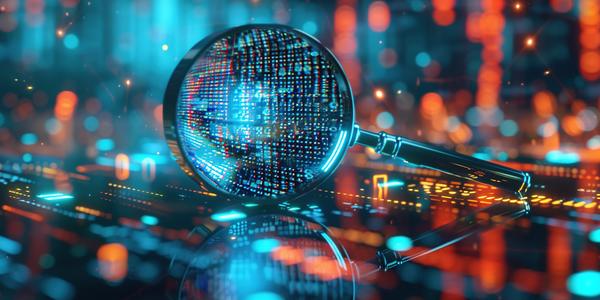Disney and NBCUniversal have filed a landmark lawsuit against the AI image-generation service Midjourney, accusing the San Francisco-based platform of enabling copyright infringement by allowing users to create images of iconic characters such as Darth Vader and Shrek. The complaint, lodged in a United States district court in Los Angeles, represents Hollywood’s first major legal action against a generative artificial intelligence company over the training and output of copyrighted material. The case centers on Midjourney’s model, its training practices, and the productions that result from user prompts, framing the service as a systematic conduit for copying protected works without authorization.
The case marks a critical moment in the ongoing clash between the creative industries and AI technology providers. Disney Enterprises, Marvel, Lucasfilm, 20th Century Studios, Universal City Studios Productions, and DreamWorks Animation have joined NBCUniversal in the lawsuit, signaling a broad industry coalition against generative AI platforms that enable or facilitate the reproduction of copyrighted characters. The studios argue that Midjourney’s AI image-synthesis engine is trained on copyrighted artwork without the permission of rights holders, a practice they portray as a deliberate, ongoing infringement. The plaintiffs describe Midjourney as a “bottomless pit of plagiarism” that enables users to generate what they characterize as “AI slop”—personalized images of copyrighted characters—thereby eroding the control rights holders exercise over their own creations. The legal filing positions the case as an early, high-profile test of how copyright law applies to AI training data and output, particularly for characters with enduring cultural significance.
Overview of the lawsuit and the parties
The lawsuit targets Midjourney, a subscription-based image-synthesis service and online community that invites users to craft written prompts and submit them to an artificial intelligence model designed to produce new images in response. This model, the studios contend, has long been trained on copyrighted artworks without obtaining permissions from rights holders, a practice central to debates over the legality and ethics of AI-driven content creation. The complaint provides a detailed, point-by-point account of how the Midjourney platform operates and why the studios believe the output infringes established copyrights. It emphasizes that the case is not merely about accidental similarities but about a system that the plaintiffs allege is designed to reproduce protected material at scale through user prompts.
The plaintiffs specifically accuse Midjourney of training its AI model by scraping a broad swath of the internet for copyrighted content, employing automated tools described in the filing as “bots, scrapers, streamrippers, video downloaders, and web crawlers.” This alleged data-gathering workflow, according to the studios, furnishes the foundation for the platform’s ability to generate images featuring copyrighted characters when users prompt the system with simple requests. The studios underscore that the training method is not incidental but rather a deliberate process intended to harvest as much material as possible to fuel the AI’s output capabilities. The complaint highlights the business model behind Midjourney, emphasizing that it relies on user-generated prompts to produce new visuals and that the outputs can be downloaded in high quality, making them easily reusable by users across various platforms and contexts.
In their critical argument, the studios assert that Midjourney has access to and benefits from a repository of copyrighted content that it uses to train and refine its model, thereby embedding protected characters and scenes into the AI’s learned representations. The complaint further contends that this training approach leads to outputs that closely resemble the original works, which, in the studios’ view, amounts to infringement when those outputs reproduce protected elements without authorization. The legal filing includes visual exemplars intended to illustrate the alleged infringements, juxtaposing Midjourney’s generated images with the original copyrighted characters to demonstrate the claimed likeness and potential for confusion.
The complaint catalogues a range of characters and franchises that the studios say Midjourney has produced or could produce through prompts, including Darth Vader, Yoda, Wall-E, Stormtroopers, Minions, and figures from How to Train Your Dragon. These examples are presented to show the platform’s capacity to reproduce widely recognized copyrighted figures and identities, reinforcing the studios’ argument that the training method and the resulting outputs pose a substantial and ongoing risk of infringement. The studios argue that these examples are not isolated incidents but representative of a broader pattern in which the platform makes protected characters readily accessible to users in downloadable formats, thereby increasing the likelihood of reuse and commercial exploitation.
The filing further asserts that Midjourney is not a passive recipient of user-created content but an active participant in promoting and distributing infringements. The complaint notes that the Midjourney platform features an “Explore” section where user-generated works are curated and highlighted, implying that Midjourney knowingly showcases outputs featuring copyrighted characters. By presenting such content to the public, the studios claim Midjourney is signaling to users and the market that reproduction of protected works is permissible on its platform. This alleged curation, the plaintiffs argue, serves as evidence that Midjourney recognizes and permits regular reproduction of the plaintiffs’ copyrighted material, thereby facilitating infringement on a routine basis.
The studios also contend that Midjourney has technical safeguards that could be used to prevent the generation of outputs containing copyrighted material but has chosen not to implement these protections. They allege that the lack of rigorous copyright-protection measures allows infringement to occur more readily and more often. In this context, the complaint cites statements attributed to Midjourney’s chief executive, David Holz, asserting that the company “pulls off all the data it can, all the text it can, all the images it can” to feed the training process. This claim is presented as evidence that Midjourney is not merely negligent but intentionally broad in its data collection practices, with full awareness of the potential copyright implications.
The studios’ procedural posture
According to reporting, the studios attempted to address the issue with Midjourney prior to filing the lawsuit but found the platform unresponsive or insufficient in stopping IP theft. In a broader industry narrative, Disney and NBCUniversal are portrayed as having sought cooperative measures from various AI platforms, with some platforms agreeing to adopt safeguards and content restrictions designed to curb IP infringement. The Studios argue that Midjourney “continued to release new versions of its Image Service” while allegedly generating even higher-quality infringing images, presenting a sense of ongoing and escalating risk to intellectual property owners. In a statement quoted by industry press, NBCUniversal’s executive vice president and general counsel, Kim Harris, framed the lawsuit as a necessary step to protect the “hard work of all the artists whose work entertains and inspires us” and to safeguard the studios’ significant investments in their content. The studios emphasize their desire to defend the intellectual property that underpins their characters, franchises, and the broader ecosystem of licensed works.
The broader industry context
The Midjourney case is positioned within a wider wave of intellectual property disputes involving AI technologies. In February of the year of filing, more than a dozen major news organizations filed lawsuits against the Cohere platform, asserting similar copyright concerns about the use of proprietary content to train language models or facilitate content generation. The legal actions in these cases reflect a growing pattern where rights holders in different creative sectors—news, visual art, film, and entertainment—are challenging AI providers over access to copyrighted material used to train models. The plaintiffs in these cases argue that the training process extracts protected content without consent, license, or fair use authorization, thereby undermining the market control and moral rights associated with their works.
Historical context is also relevant here. In 2023, a group of visual artists filed suits against Midjourney alleging similar copyright concerns tied to the training and output of AI-generated images. These prior actions laid the groundwork for the current multi-studio complaint, highlighting recurring themes around the legality of training data acquisition, the ownership of derivative outputs, and the responsibilities of AI platform operators to police their ecosystems. The drama surrounding Midjourney’s practices has thus evolved into a focal point in debates about how to regulate AI data collection, how to define fair use in the context of training machine-learning models, and how to balance innovation with creators’ rights.
The studios’ position on Midjourney’s knowledge and intentionality
A central claim in the lawsuit is that Midjourney “knows what it’s doing” in both enabling and promoting infringement. Beyond simply allowing users to generate copyrighted images, the studios argue that Midjourney actively promotes infringing outputs by publicly presenting user-created content that features protected characters within its platform’s Explore section. The complaint posits that this curation demonstrates Midjourney’s awareness that its platform frequently reproduces the plaintiffs’ copyrighted works, turning the platform into a conduit for infringement on a recurring basis. If the court accepts this premise, it would support the assertion that Midjourney’s actions constitute deliberate or willful infringement, rather than isolated, incidental occurrences.
Further, the studios point to alleged “protective measures” that could be implemented but are not, arguing that Midjourney has opted not to use available copyright protections to limit infringements. The filing references technical options such as filters, enforcement mechanisms, or other safeguards designed to prevent the generation of outputs containing copyrighted characters or scenes. The argument frames Midjourney’s alleged failure to implement such measures as a conscious choice that prioritizes platform growth or user engagement over rights-holders’ protections. The narrative positions Midjourney as a company that is fully aware of the copyright implications of its training and output, yet chooses to proceed without the safeguards that could mitigate infringement risk.
Industry reaction and the shifting AI copyright landscape
Industry observers have noted that the timing of the Midjourney lawsuit aligns with a broader re-evaluation of how AI systems interact with copyrighted content. Axios, a media outlet covering technology and policy, reported that while Disney and NBCUniversal had begun engaging with Midjourney prior to filing, other platforms in the AI landscape had begun implementing measures to counter IP theft. The reporting suggests that a number of competitors took steps to reduce risk for rights holders, whereas Midjourney reportedly continued to roll out new versions of its image service that produced outputs of rising quality, per statements attributed to Holz. This dynamic underscores a competitive environment in which different AI providers balance product development, user demand, and compliance with intellectual property rules.
Statement from the plaintiffs
In statements accompanying the filing, NBCUniversal’s Kim Harris framed the action as a necessary defense of the work, artistry, and investment that define the studios’ business model and the experiences they deliver to audiences. Harris’s remarks emphasized the need to protect the livelihoods of artists and the financial commitments tied to creating, distributing, and monetizing film, television, and related media franchises. The studios describe the lawsuit not merely as a legal maneuver but as a principled stand to sustain the integrity and value of copyrighted works and the ecosystems that surround them, including licensing, merchandising, and derivative products that rely on rights protection. The plaintiffs’ position indicates an intent to deter what they view as systematic infringement and to compel AI platforms to honor licenses, obtain permissions, or otherwise implement safeguards that prevent unauthorized reproductions of protected content.
Industry implications and the road ahead
The litigation signals a potential paradigm shift in how the entertainment industry, AI developers, and policymakers navigate intellectual property in the era of generative AI. If courts recognize that training a model on copyrighted works without consent constitutes infringement, or that platform-level curation and promotion of infringing outputs amount to complicity, the implications could reshape business models, licensing regimes, and platform governance across the AI sector. Rights holders may seek clearer licensing pathways, stricter data-source disclosures, or mandatory compliance measures that ensure synthetic outputs do not undermine protected properties. Conversely, AI developers may explore new training data strategies, consent-based data collections, or robust content-filtering technologies to minimize legal exposure while preserving the creative potential of generative systems.
Industry players who have not joined the suit
It is notable that other major studios—some of which are members of the Motion Picture Association and have a stake in the broader AI policy conversation—had not joined the lawsuit at the time of filing. Studios such as Amazon, Netflix, Paramount Pictures, Sony, and Warner Bros. are referenced as affiliates within the MPAA, reflecting a shared interest in addressing IP concerns related to AI. The absence of these studios from the lawsuit may reflect strategic considerations, ongoing negotiations, or differing interpretations of how best to pursue protections in court and through policy channels. The evolving coalition of industry participants will likely influence how the case proceeds, how other platforms respond, and whether additional lawsuits or settlements emerge in the near term.
Implications for AI platforms and content generation
The case raises practical questions about the responsibilities of AI platforms that generate images from user prompts. If the court determines that training on copyrighted material without permission exposes platform operators to infringement liability, AI services may be compelled to implement licensing arrangements, consent-based data collection, or more stringent content moderation and output controls. The debate also touches on the future of data sourcing for training sets, including whether rights holders must be compensated when their works contribute to the training of commercial-grade models, and how “fair use” or transformative use defenses may apply to machine-generated outputs. As studios press for stronger IP protections, AI platforms could respond by enhancing metadata, watermarking capabilities, or provenance-tracking features to demonstrate lawful data sources and to shield users from unintentional infringement.
Conclusion
The lawsuit filed by Disney, NBCUniversal, and their affiliates against Midjourney marks a pivotal moment in the intersection of copyright law and artificial intelligence. By asserting that Midjourney’s training practices and platform dynamics facilitate widespread infringement of iconic characters and franchises, the studios seek to redefine the responsibilities of AI providers and the protections available to rights holders in a rapidly evolving technological landscape. The case emphasizes the tension between the creative industries’ desire to protect intellectual property and the AI community’s push toward innovation and open use of large-scale data. As other platforms, studios, and policymakers observe and respond, the legal proceedings surrounding Midjourney will likely influence how AI models are trained, how outputs are produced and distributed, and how copyright regimes adapt to the capabilities of modern generation technologies. In parallel, the broader industry is watching for potential shifts in licensing norms, data-source transparency, and safeguards that could shape the next era of AI-assisted content creation.
This article reflects a comprehensive view of the case as described by the plaintiffs, the alleged practices of the defendant, and the broader industry context, including related legal actions and the implications for the future governance of AI-generated content.


